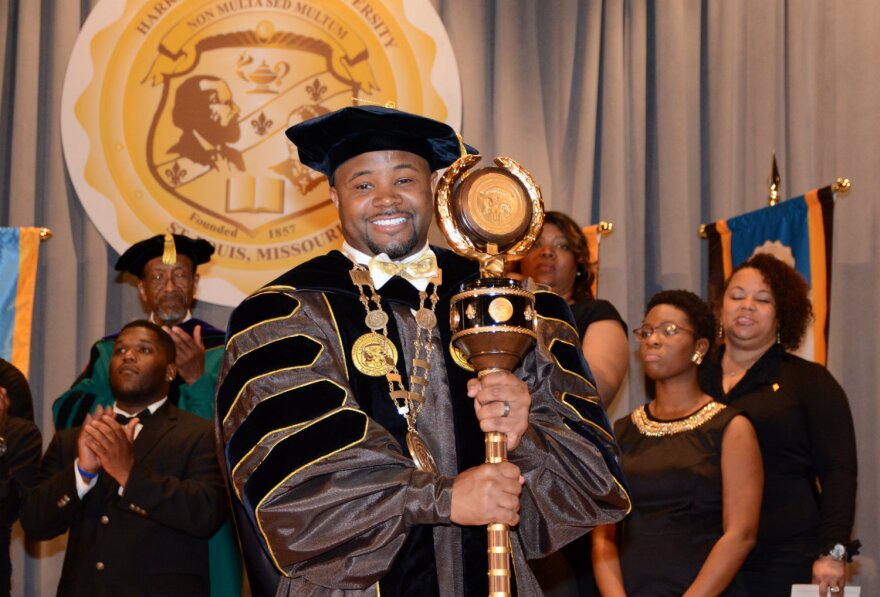According to the most recently available federal records, Harris-Stowe State University’s six-year graduation rate was three to six times lower than Missouri’s other public colleges in 2014.
But university officials say the graduation rate only counts a fraction of the historically black college’s graduates, and cite increased enrollment and a large graduating class as evidence of the school’s success.
Harris-Stowe President Dwaun Warmack said the 156 graduates who received bachelor’s degrees this May were in one of the largest graduating classes in school history. The university awarded degrees to 132 graduates in 2014.
“[It’s an] amazing graduating class. Average GPA of that class was a 3.03,” Warmack said. “We’re extremely excited.”
Warmack said Harris-Stowe’s graduation rate is misleading because it only counts students who began their college careers at Harris Stowe as full-time students. More than 70 percent of Harris-Stowe students transferred in from other schools or attend part time. The graduation rates for students in those categories aren’t available.
“We serve a large percentage of first-generation college students from low socio-economic backgrounds and a large percentage of our students are transfers," he said. "A large percentage of our students are transient. They’re working two to three jobs, have a family, so it will vary from that context."
As an open-enrollment institution, Warmack said, Harris-Stowe's mission is to provide access to those students.
“We can’t go against a mission the state mandates us to do, to serve that underserved, underrepresented population, so we do provide that opportunity,” he said. “Once they’re here, they’re extremely successful and they graduate. They just don’t count in that flawed statistical analysis by the federal government.”

Warmack said the total number of graduates, measured by degree completion, is a more accurate metric. By that count, Harris-Stowe falls just short of state averages. According to a St. Louis public Radio analysis of state records, about 10 percent of all students enrolled at Harris-Stowe in 2014 earned degrees.
On average, 18 percent of undergraduates enrolled at public colleges in Missouri earned degrees that year, with all 13 public Missouri 4-year colleges falling in between 10 and 22 percent.
A data analysis tool on the federal higher education data collection website found that in a comparison with 12 other urban historically black colleges of about the same enrollment size, Harris-Stowe has about the same number of first-time, full-time students. Harris-Stowe again had a degree completion rate of about 10 percent, with the 12 other historically black colleges averaging a degree completion rate of 14 percent.
Still, Warmack said that since he became president in 2014, he’s been working to increase the number of first-time, full-time freshmen at Harris-Stowe. He predicted a higher graduation rate when the 2014 six-year cohort is complete in 2020.
Harris-Stowe’s total enrollment has gone up 13 percent since Warmack took office in 2014.
In the meantime, he pointed to the number of students enrolling at the school and the dual-degree partnerships he’s forged with other higher education institutions, such as the Goldfarb School of Nursing, as signs Harris-Stowe is doing well.
“Our applications are up over 250 percent from a three year span," Warmack said. That means students are choosing to come here. And so we’re able to bring in — so we went from a 2.4 GPA when I first arrived, to over a 3.0 for these students that are coming in."
Follow Camille on Twitter: @cmpcamille


